|
Trinidadian filmmaker Horace Ové was knighted in the UK’s annual New Year Honours on Friday becoming a knight for services to media.
Ové, 82, is credited by Guinness World Records as being the first black British filmmaker to direct a feature-length film, Pressure, in 1976. It told the story of London teenager, Tony, who joins the Black Power movement in the 1970s. It was banned for two years by the British Film Institute (BFI) before it later received critical acclaim. In 2007 the director, writer and photographer, he was awarded the Commander of the Order of the British Empire in the Queen's Birthday Honours List for his services to the film industry, and in 2018 he received the Special Jury Prize at the British Independent Film Awards. According to the UK Evening Standard, the judges said, “Ové may (regretfully) not be a household name but, as the man whom the Guinness Book of Records credits as the first black British film-maker to direct a feature film, his contribution to cinema in the UK has certainly been significant. “In a year where Windrush has been plastered across newspaper headlines, it seems fitting that the jury have chosen to honour one of the generation’s proudest voices.” Ové was also honoured at the 2021 TT Film Festival in September when it hosted a retrospective of his films including Playing Away, and King Carnival, Ové’s love letter to Trinidad Carnival. In a statement to the PA news agency, Sir Horace said, “I’m greatly honoured to receive this recognition for my work. “Chronicling the lives, battles, art and culture of the African and Caribbean diaspora in Britain and around the world has been a lifelong journey and passion. “This award is testament to how far we have come and in many respects how far we still have to go. One love.” Ové, who grew up in Belmont, went to London in the 1960 to attend art school. He took a detour to Rome to work on film productions, and later returned to England to attend film school. His first film was a short film called The Art Of The Needle in 1966. Since then there have been many short, feature, and documentary films, mostly with black themes, including Baldwin’s Nigger in 1969, the BBC documentary Reggae in 1970, and A Hole In Babylon in 1979. (Source: Newsday , Jan 2, 2022)
0 Comments
Speyside High School student Israel Melville, 15, just needs a paintbrush, paint, and canvas to be happy. “I eat and dream art,” says the form four student. He shares his dream of having an exhibition of his work.
Last Monday, Melville, originally from Argyle, but currently residing at Delaford, had the distinction of presenting one of his paintings to THA Secretary for Education Zorisha Hackett. The painting is titled Caribbean Constellation. Hackett visited the school on Monday alongside Chief Secretary and representative for the area, Farley Augustine, as well as other education officials. Melville said his artistic inspiration began at age seven. He said his cousin Casey Daniel, who is an art teacher at the Roxborough Secondary School, had started a men’s boutique, near his home in Argyle, where she designed the fabrics for sale. “I was captivated by her work, and she began designing fabric for queen pageants. I was always around her, so I started drawing anything that came to my mind on paper.” Melville said he always knew art would be part of his future and he took that into consideration when writing his Secondary Entrance Assessment (SEA) examination. “I had the opportunity to further my artistic development when I entered secondary school. Speyside was my first choice for a secondary school because I knew of the reputation they had in art.” Speyside High School has won six of the seven Chief Secretary Secondary Schools art competitions, from 2013-2019. Melville said his artistic side thrived in secondary school. “Attending Speyside was a blessing for me. "Miss Avion Orr, who is my art teacher, is my favourite art personality. She is always looking out for me, I like her personality and she always encourages me to try new things, and I always come first at exams in her class.” (Source: Newsday Jan 8, 2022) Dana Reyes and Tyrese Clement have been awarded Fullerton-Long Caribbean scholarships by the Institute and Faculty of Actuaries (IFoA) Foundation.
Both are third-year students of the actuarial sciences programme at the Department of Mathematics and Statistics, Faculty of Science and Technology, at the UWI St Augustine Campus. The pair were selected from a list of UWI’s most gifted and highest performing actuarial students. They each won scholarships worth US$2,150. The Fullerton-Long Caribbean Scholarship was set up by UK-based senior actuaries of Jamaican heritage, Andrew Long and Norbert Fullerton. Both are ambassadors of the IFoA Foundation and UWI alumni, The IFoA Foundation is the dedicated charitable arm of the IFoA. The foundation works with the global actuarial community to meet its philanthropic objectives for positive societal impact. Earlier this academic year, the foundation took the opportunity to launch a fund supporting the most gifted and highest-performing young actuaries studying at UWI. IFoA's chair of trustees Kartina Tahir Thomson said, "The IFoA Foundation is delighted to work alongside Norbert and Andrew on the IFoA Foundation Fullerton-Long Scholarship Award. The scholarship award aims to support Caribbean students in their academic career. Not only would the students benefit financially, they would also benefit from the opportunity the award brings. "Thanks to the scholarship award, we will have an even more diverse workforce and membership in the actuarial profession. The addition of other supporters’ contributions to the fund going forward will mean that we are able to offer this highly coveted scholarship to even more promising students from the region." In 2021 the Fullerton-Long Scholarship was initiated for the UWI Mona actuarial programme, offering two awards of USD$2,150 each. This year it has partnered with the IFoA Foundation and secured extra funding to expand the programme to St Augustine. Stokeley Smart, senior lecturer and co-ordinator of the BSc in actuarial science, said, “The IFoA Foundation Fullerton-Long Caribbean Scholarship and, in particular, Mr Fullerton and Mr Long, represent the very core of the UWI’s values. These sons of the region and UWI alumni are exemplary global leaders in their field and are eager to give back to UWI and contribute to the development of the region.” Those eligible for the new IFoA Foundation Fullerton-Long Caribbean Scholarship must be: Caribbean Community (Caricom) citizens Students registered at UWI full time for a BSc degree with a major in mathematics or actuarial science At Level II or III of their studies Strong academic performance, with a minimum average GPA 3.3 in their previous year’s UWI exams Strong leadership and teamwork skills Demonstrable involvement in their local community and an outstanding character Students committed to joining an actuarial professional body. (Source: Newsday, January 5, 2022) Social psychology educator and researcher Justin Preddie didn’t realise that he’d end up falling in love with teaching and academia when he first signed up as a psychology major at Hampton University in Virginia some 11 years ago.
Sharing that he was sure that he didn’t want to work in applied psychology, the Santa Cruz native recalled being “fairly certain that psychology was the path.” However, he wasn’t quite sure where that interest would take him. Preddie didn’t begin to consider a path in academia until his second undergraduate year, when one of his lecturers, social psychologist Dr Candice Wallace, upon observing the quality of his assignments, told him that he had ‘a mind suited to research.’ Wallace’s research of the African American experience and its varied psychological effects on members of the community inspired Preddie’s own burgeoning interests in research and the understanding of his identity as a queer Black man living in North America. “Her class was really the first that confirmed that I had chosen the right major,” Preddie said. Guided by Wallace, Preddie took up research opportunities, which led to a broadening of his knowledge within the field, and in turn, opened new possibilities for interest and research. “It sort of concretised from there.” A decade later, Preddie is a freshly minted doctorate holder, and postdoctoral fellow and lecturer at Muhlenberg College, Pennsylvania, where he will take up a tenure-track position as an Assistant Professor in Psychology and Africana Studies beginning in the 2022 fall semester. Preddie’s journey as an academic is woven into his own self-discovery over his time spent in the US–his queerness, as well as the experience of being Black and from the Caribbean, and integrating into North American culture. Through coming to understand himself at all intersections of his identity, how the facets of this identity play off against each other within the wider culture, and the way in which these experiences impact the psychology of the persons within those groups, Preddie was able to develop pertinent and relatable research that answered both personal and academic questions. “We research things that are personally relevant to us,” Preddie said, explaining that his training allowed him to develop much of what was already his lived experience into research “in a more formalised way.” “My work is specifically focused on Black gay men,” he stated. Through his understanding of Blackness as diasporic and transcending culture, Preddie, as a researcher with Caribbean roots, is able to serve within the Africana Studies department, dedicated to scholarship that centres the experiences of persons of African descent. Naturally, Preddie contributes to this research using his expertise as a social psychologist, using frameworks to better understand the psychological impact of factors such as prejudice and stereotypes, and how these lead to the development of both external perception and self-concept, taking into account the impact of slavery, civil rights and LGBTQ+ rights, among other factors. Preddie clearly stated some of the key questions that his research asks: “What does it mean to be Black? What does it mean to be gay? And what does it mean to be Black and gay simultaneously? What does it mean to operate as a Black, gay man in the United States?” To further explain, Preddie said that when one thinks of a Black man, the idea conjured by this would be different from that of a gay man, which would, in turn, be different from that of a man who is both Black and gay. Though summed up in a few sentences, the work is comprehensive and ongoing, requiring the tools to intricately and closely understand aspects of the Black experience in ways that can be used, not only to build scholarship but to “improve the psychological well-being of Black folks in the US and in the diaspora.” Preddie’s work is evidence of the importance of intersectionality, a framework that takes into account overlapping identities and experiences to understand the layers of prejudice faced by members of various communities. Intersectionality can be applied to all communities, using factors such as ethnicity, socio-economic background, language, gender identity and sexual orientation to better understand and remedy the prejudices faced by these groups. In other words, one can hardly deal with Black issues accurately without addressing the varied experiences of Black people of different complexions, with different gender identities, sexual orientations and from different income brackets. Preddie said that one of his objectives as an educator is to challenge his students using “perspectives that they have not encountered before that are either different or similar to their own.” This is where the breadth of his work’s “diasporic implications” comes in, offering to his mostly US-raised students the variations of the Black experience. “They have a hard time imagining what life can look like outside of a particular context that defines the United States,” he explained. This, he said, speaks to many North Americans’ tendency to be “highly insular” when considering the lived experiences of others, often placing the US at the centre of their worldview. And yet, all differences considered, Preddie shows his students that culture can still serve to unify the disparate members of the diaspora, an equally important aspect of how he delivers his content. “I help them understand that the reasons why culture merges differently has a lot to do with history [and that] experiences can be parallel to theirs but distinct because of different cultural norms,” he added. Preddie expressed his excitement to take on the new post in the coming academic year, one that would give him a higher rank at the university and would also allow him to expand his teaching and research undertakings. He aspires to continue advancing the communities he is committed to serving, hoping that his research would be harnessed in seeking their overall improvement. (Source: The Loop, Dec 31, 2021) Memories of calypsonian Kenny J (Kenwrick Joseph) and grief flooded social media following his death.
Kenny J spent what was one of his favourite times of the year, Christmas, at the Augustus Long Hospital, Pointe-a-Pierre, fighting for his life. After a two-week battle with Covid-19, which saw him being treated in the intensive care unit, Kenny J succumbed to the dreaded virus that has claimed close to 3,000 lives in Trinidad and Tobago. His daughter, Jesselle Joseph, yesterday confirmed that her father was fully vaccinated. He was 69 years old. Kenny J was featured recently in a public service announcement video series spearheaded by promoter Randy Glasgow and produced by the National Lotteries Control Board (NLCB). The series comprised short video clips in which artistes and other popular personalities encouraged members of the general public to get vaccinated. Playing his guitar, Kenny J sang, “Doh hesitate, just vaccinate. Yuh want to go in the mall, yuh want tings get back normal. Yuh want to see Kenny sing…” Prior to falling ill, Kenny J performed at several Christmas events, including a WACK FM Christmas special and the Parang with Rome concert, where he reminded audiences to get vaccinated and to always be careful. Honey-dipped voice A retired police officer, Kenny J won the National Police Services Calypso Monarch title in 1987. From there he began to perform professionally and in 1990 he placed second in the National Calypso Monarch final having sung, “Addicted To Sweet Soca” and “Leave She Alone”. Kenny J possessed a honey-dipped voice just like Baron and Sugar Aloes, which made him a hit with both men and women. His quiet manner and infectious smile endeared him to his fellow calypsonians who considered him the consummate gentleman. Kenny J tried his hand at soca parang in 1993, releasing “The Paint Brush,” a well-crafted double entendre that became an instant hit. The song became synonymous with Kenny J and the Christmas season, through the years becoming an evergreen classic. He would enjoy the same level of success with two other soca parang releases during the 1990s, “Alexander” and “Hush Yuh Mout,” which guaranteed Kenny J work during the Christmas season for over two decades. True cultural icon Kenny J died one day after the calypso fraternity lost Clifton Ryan, the Mighty Bomber, who was 93.\ Speaking briefly with the Express yesterday, president of the Police Service Social and Welfare Association Insp Gideon Dickson extended his condolences to the family of the former policeman. “We were deeply saddened upon hearing the news today. We would like to extend our deepest condolences to the family, friends, and retired colleagues of Mr Kenny J. His legacy will certainly live on in his music. May his soul rest in eternal peace,” Dickson said. Minister of Tourism, Culture and the Arts Randall Mitchell paid tribute to both men in a social media post: “My deepest condolences to the families of Mighty Bomber and Kenny J. Thank you for the contribution you made to enhancing our music and for taking Trinidad and Tobago internationally. May you both rest in peace. Folded hands.” And National Carnival Commission (NCC) chairman and calypsonian Winston “Gypsy” Peters, in a Facebook post yesterday, extended “condolences to the family of Kenwrick ‘Kenny J’ Joseph, the fraternity will surely miss you. Rest In Peace!” Opposition Leader Kamla Persad-Bissessar extended condolences, stating: “Rest in Peace to a true cultural icon Kenny J. Condolences to all his loved ones during this time of mourning.” (Source: Trinidad Express, Jan 2, 2022) Through his informal training to become a chef, Reuel Vincent consumed everything he could from Chef Gordon Ramsay.
On the first episode of the show Next Level Chef, Vincent, who was born in Trinidad and Tobago, had an experience he couldn't conjure up in his wildest dreams when Ramsay selected him as the first person on his team. To say it was surreal for Vincent would be an understatement. “To be honest I feel extremely excited because it is like you watch this guy on TV and he is one of my idols. I couldn’t afford to go to culinary school and Chef Ramsay had all this free content so I am a student of his. It was very surreal to know that you are the first pick of the same guy you watched, I was speechless,” he told Loop News from New York where he lives. Next Level Chef is Ramsay’s latest reality cooking series and takes place in a tri-level kitchen that ranges from world-class to barebones. The Fox series pits 15 contestants — a combination of amateur, professional and social media chefs — against each other. At the end of the first episode, five chefs were handpicked by Ramsay, renowned restaurateur Nyesha Arrington and James Beard-nominated chef Richard Blais to benefit from their mentoring for the rest of the show. Vincent, who was in the group operating in the barebones basement kitchen, impressed Ramsay with his creative and flavourful meal made from Spam. “The only thing that came to my mind was that I could treat it like corned beef but corned beef breaks up so I said let’s do this up the best I can,’ he said of the competition. Browsing through Vincent’s Instagram pages, it is clear that he isn’t afraid to tackle any dish. From Asian cuisine to baked products, Vincent challenges himself to master any ingredient that is placed before him in his quest to stand shoulder to shoulder with the best. His mantra, “I'm not passionate I'm hungry” best describes his attitude which is fuelled by his lack of formal training. Unlike many chefs, Vincent didn’t go to school to learn culinary arts; his training came from watching people like Chef Ramsay and practical experience, working with his aunt in her catering business after he dropped out of college. “I always loved cooking but I guess within society they had this thing about going to college and that is how you make it. I went to Andrews University to do physical therapy but it was boring and I told my mum I wanted to go back to New York but she said no. I switched to nursing but I said nah, I washed my hands of that and went back to New York. I had to work because I had a lot of student debt and my aunt owned a catering company in Manhattan. She ran me through the wringer, she made me work for every single penny but I learned a lot,” he recalled. Vincent graduated from his aunt’s business to the One World Trade Centre where he works today as a banquet chef serving celebrities and high-end clientele from all over the world. Applying to be on Next Level Chef was his way of sealing his prowess in the kitchen. “People look at not being formally trained as a crutch but it is fuel, you overlearn to compensate. If you go to school and have a degree hanging on the wall, you think you are done, I am never done,” Vincent declared, noting that he has sacrificed everything, including relationships, for his career. Vincent’s interest in food began in T&T. Growing up in Sangre Grande with his maternal great-grandmother and grandmother after his parents split and his mother migrated to the US, he learned a lot that stayed with him to this day. “My great-grand is Carib and she taught me a lot of ways of cooking. My grandmother would wake me up to go on the market run and she kept me on her hips the whole time in the kitchen so I learned things like how to break down a chicken. You know older Caribbean women would teach you everything so no one could cut style on you,” he said. He also learned a lot from his dad who lived in Maracas, St Joseph, and worked as a taxi driver. Vincent bonded a lot with his father when he attended Caribbean Union College. Describing his late dad as a "bush cook", he recalled watching him bubble large pots of soup and wild meat. “I learned how to season food from him. His favourite thing was curry duck and dumpling. He took me to my first river lime at Caura around the age of nine and as a kid, whenever he made the dumpling in the big pot, I would take the pot afterward and put it on my head and end up with pieces of dumpling in my hair,” he said with a laugh. Vincent migrated to the United States two weeks before 9/11 to live with his mother. He said though his father never went to the US, he asked a lot about the food over there. As Vincent started cooking for himself, his dad walked him through the process. He said from his life in Trinidad, he learned how to deal with raw ingredients and the basics of flavour. “If you are doing pelau or curry, they seem simple but they are layered. I used to watch my dad make curry dishes and he would add water to the curry before he put it in the pot. Now I understand the science behind that. We add water to the curry for it to bloom, the steam makes the curry bloom and the aromatic flavours open up,’ he explained. Vincent, who last visited T&T around the mid-2000s, dreams of opening a restaurant in the land of his birth one day. Until then he will continue building his name and his appearance on Next Level Chef might be just the show to put him on the map. “Strap in,’ he said of the show. “This is gonna be a good one.” (Source: The Loop, Jan 5, 2022)  Trinidad does move fast,” author Ayanna Lloyd Banwo laughed. “You come home one day and you can’t park on that [side of the] street.” “I’m walking from City Gate and I’m trying to get to Woodford Square…” she mused, as she attempted to mentally retrace her steps to the taxi stand and to some of her other familiar haunts. “Have I forgotten things? Is that still the route?” Lloyd Banwo has been based in the UK since 2018, when she relocated to read for an MA in Creative Writing–and subsequently, a PhD–at the University of East Anglia. Between studies, being immersed in writing to meet her publisher’s deadlines and of course, the pandemic, she hasn’t been able to make it back home, and despite the thrill of being added to the growing list of West Indian voices to be internationally published by major houses, Lloyd appears to be most concerned with not forgetting–where she’s come from, and the things and people who anchor her to that place of belonging, both temporal and physical. The business of remembering, of memory, is integral to Lloyd Banwo’s work, much of which is centred on legacy, of the role of ancestors and honouring departed loved ones. Named a “Most Anticipated Book of 2022” by BuzzFeed and Essence Magazine, When We Were Birds tells the story of hapless gravedigger Darwin, estranged from his mother and the Rastafarianism she raised him to follow, and Yejide, whose mother is at the end of her life and from whose lineage of mysticism she is at risk of losing. The two protagonists find each other, and become linked together by their connection to death and the dying. Lloyd Banwo infuses folkloric elements, aspects of African spirituality and romance into a gripping narrative that speaks to the importance of maintaining a connection to those who have gone before. Like her characters, Lloyd Banwo’s trajectory, in particular, her pathway to this pivotal moment in her writing career, was impacted by the loss of loved ones. An only child, Lloyd Banwo lost her mother, father and maternal grandmother “in quick succession”, over the course of three years, from 2013 to 2015, with one death occurring in each of those. Grateful for this early success, she acknowledged the unfortunate turn of events that led her there: “This shot was purchased by a lot of grief and a lot of terrible things. I was just very unlucky to have been able to take the gamble.” Lloyd Banwo told of how she decided to upend her life in her mid-thirties and move to the UK. “I ran out of road,” she said. “I lost my parents before I had planned to [and] I wasn’t 100% happy with the job I was doing.” At the time, Lloyd Banwo was working in advertising, a job that allowed her to flex her writing chops, but not exactly in the way that she wanted to. Meanwhile, she honed her narrative writing skills, attended workshops, worked closely with the Bocas Lit Festival and was able to have some of her short stories published in literary magazines such as Anomaly, Moko Magazine and Pree. (Stories can be found at the links provided.) “I had always been writing,” Lloyd Banwo said. “I just didn’t have a clear sense of what to do with this writing.” She credited the Bocas Lit Fest and the workshop groups she became involved with for helping her to grow her craft by providing clear and honest critique and for planting the seed of applying to creative writing programmes in her head when she was still understanding the direction in which she was meant to go. “I didn’t know how one gets a novel published,” she said. “I was largely writing for myself.” Lloyd Banwo felt that she had nothing to lose by applying, even though she didn’t have the money to see it through. She was accepted to the creative writing master’s programme at the University of East Anglia, one of the UK’s most prestigious programmes in the field, and awarded a scholarship for tuition, but still had to come up with the funds to support herself. GoFundMe donations and aid from a benefactor who took an interest in her work and journey helped Lloyd Banwo to achieve her goal. Beaming with gratitude, she said, “People just believed. Bocas believed. That’s how I was able to raise enough money.” As Lloyd Banwo made it very clear, it was death that led her to the UK, and it is death that keeps her there to complete the work she began, even before leaving. “I’ve promised my dead three books. It is a pact that I’ve made with people who are not here anymore. I was given three stories when my mother died [...] I came [here] with a sense of these three books and what I wanted [to accomplish].” Although When We Were Birds will be available in February, Lloyd Banwo has already begun work on her second novel, the next of the three stories she feels destined to tell. She referred to the work as an “offering”, made to those, on account of whose loss she was able to follow this particular dream. “For some scenes, I was writing [and] it felt like I wasn’t there,” she said, explaining that the words “came so easily” as if she was being helped along something outside of herself, an ancestral force. “Without trying to be too precious,” she continued, “that’s how I feel.” She said that writing this work “just felt like a ‘thank you’ in a very tangible way.” Like her characters, particularly the gravedigger Darwin, Lloyd Banwo is “very deeply immersed in the work of death” and sees it as crucial business for the living. “It’s memory, it’s life after death,” she said. “None of us are born to live forever, but when we remember those who have died, they are alive.” She exhorts persons to take the business of lineage seriously through the stories that they tell their children and how they keep the memory of their departed loved ones alive. “Attend to your dead, to your ancestors,” she said. “They have things to teach you, to tell you. And somewhere in that, you have to forge your own way too.” The novel, set in Trinidad, in and around the fictional city of Port Angeles, features characters that speak in a manner that reflects our language, particularly our Creole, in a genuine way. “I’m from Trinidad, so that’s where my voice is from,” she said. “I write in the language that Trinidadians speak every day, in various registers.” Lloyd Banwo continued: “I think that my sensibility for story has always been indigenous Caribbean cadence, whether [through] how a character speaks, how a story might unfold, or the kinds of things you might find [in the plot].” The author said that she has been asked if she ever became concerned that her commitment to an honest portrayal of her people and their language could alienate the UK readership. “That doesn’t bother me at all,” she said. “I’m more worried that [Trinbagonians] see it and think that it isn’t them. Your audience is whoever sees [your work] and loves it.” On the matter of belonging, Lloyd Banwo still feels as connected to her sense of home being Trinidad and Tobago in reality as she does in her writing. “My husband’s family is Nigerian; he was born in the UK, and if you ask him where home is, he would say ‘Nigeria’,” she said. “Home shifts all the time in your head; it makes no sense but it does.” She maintains that for now, she still calls Trinidad home. “England is not home,” she said, resolutely. “If I’m here for another 20 years, maybe.” When asked about being in the UK for the sake of greater opportunities, she agrees and confirms this, adding that “it’s just a power thing.” She said some agents won’t even take writers seriously if they aren’t living in the right places. But with concessions and creative ideas implemented to overcome pandemic-related barriers, she hopes that more publishers’ mindsets will change soon. She wanted specifically to highlight two T&T-based writers who were able to circumvent this and achieve the goal of being published: 2018 Commonwealth Short Story Prize winner Kevin Jared Hosein, whose Devotion is set for an August 2022 release, and 2017 Commonwealth Short Story Prize finalist Caroline Mackenzie, author of One Year of Ugly, the rights for which were purchased by Netflix in 2020. Propelled by “blessings, ancestral guidance, the right stories and a little bit of luck,” Lloyd Banwo works feverishly at creating art that remains true to her convictions and to her spiritual core. When We Were Birds is out in February and March 2022 in the UK and US/Canada, respectively. Pre-order the riveting novel, and check out Ayanna Lloyd Banwo via her official page, Instagram and Twitter for updates and additional information. (Source: January 22, 2022 The Loop) |
T&T news blogThe intent of this blog is to bring some news from home and other fun items. If you enjoy what you read, please leave us a comment.. Archives
June 2025
Categories
All
|
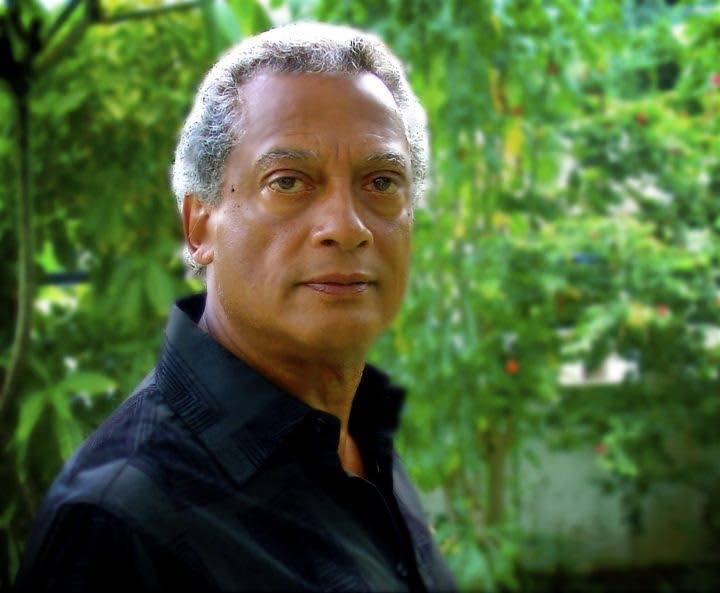
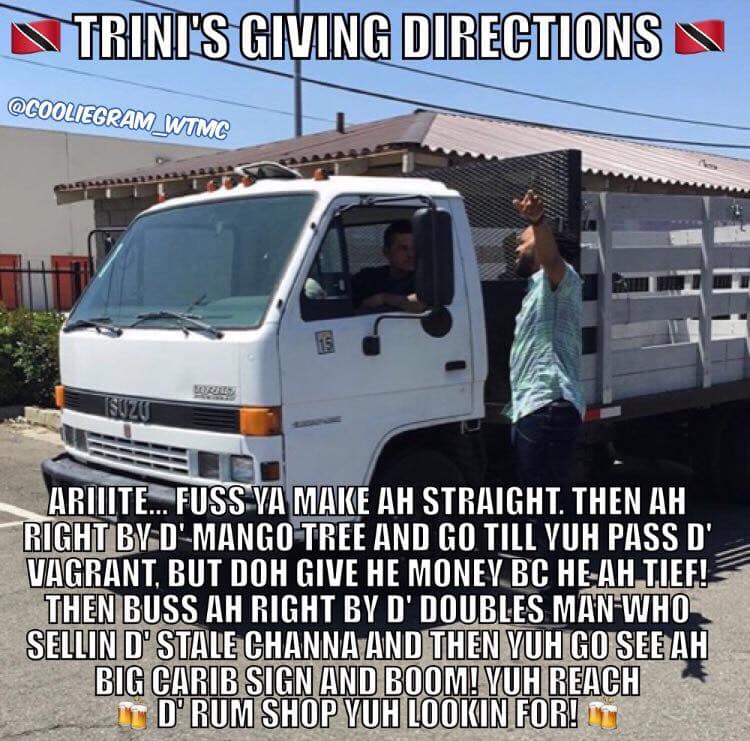
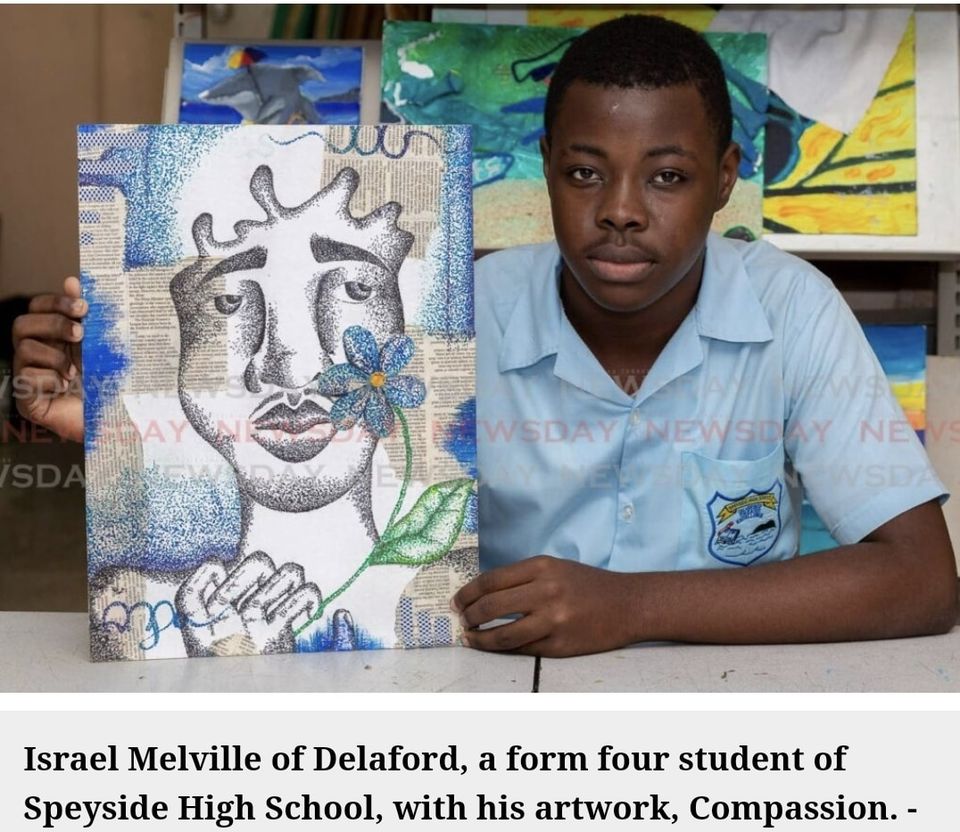
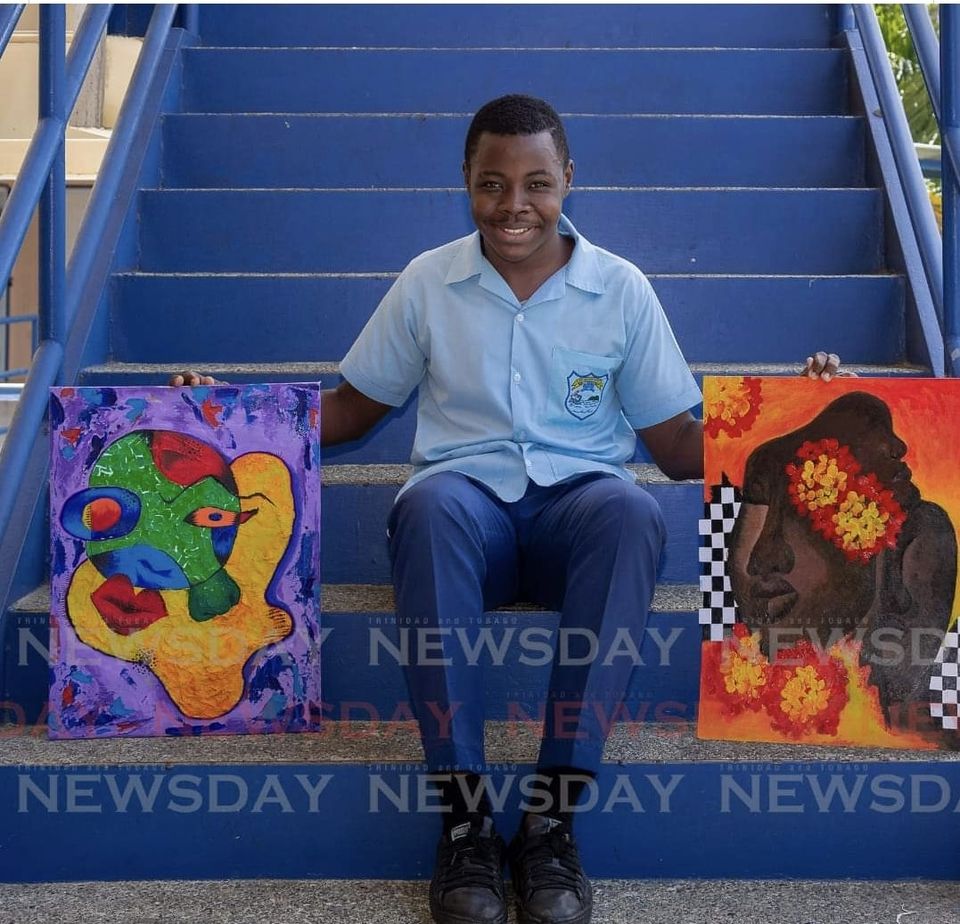
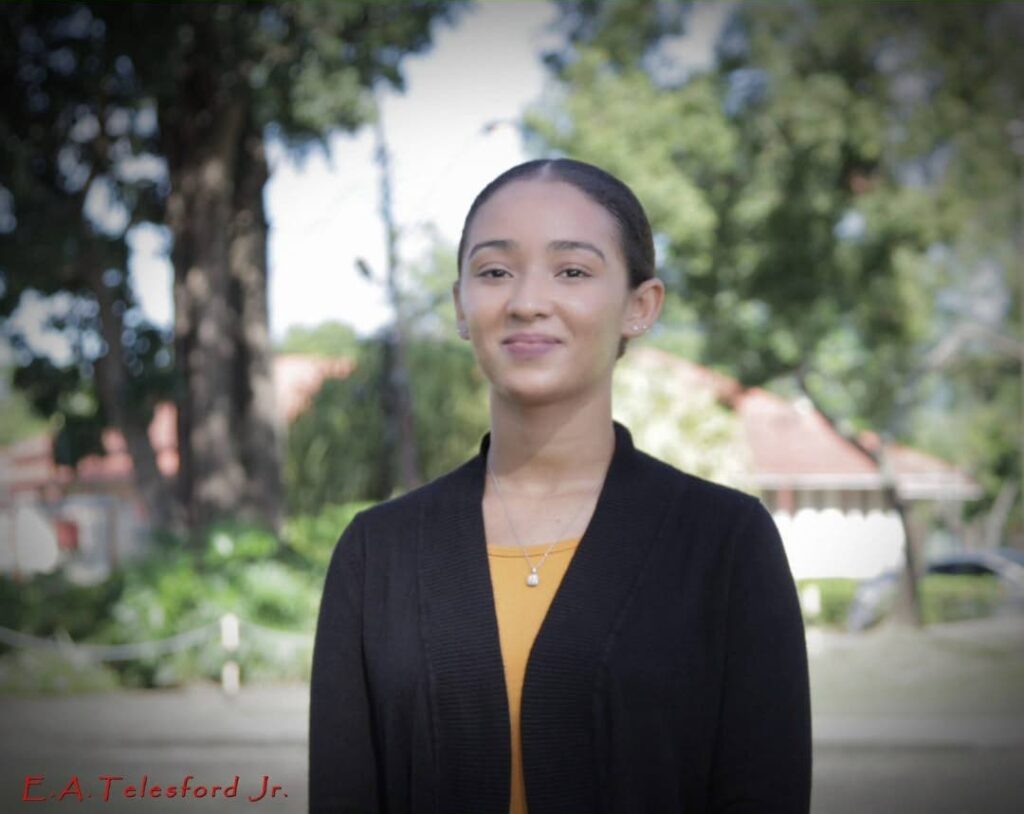
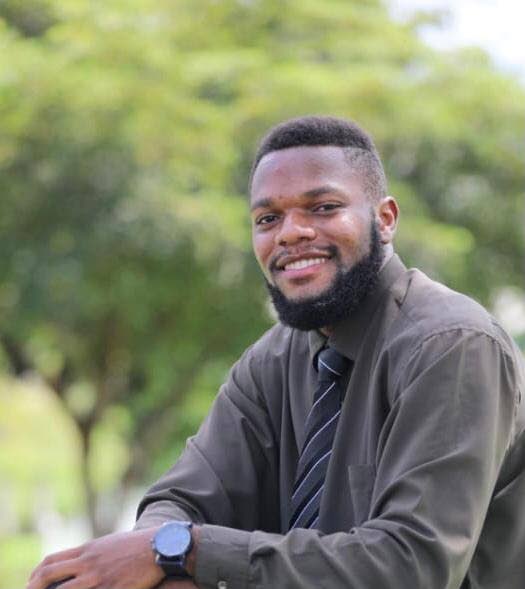
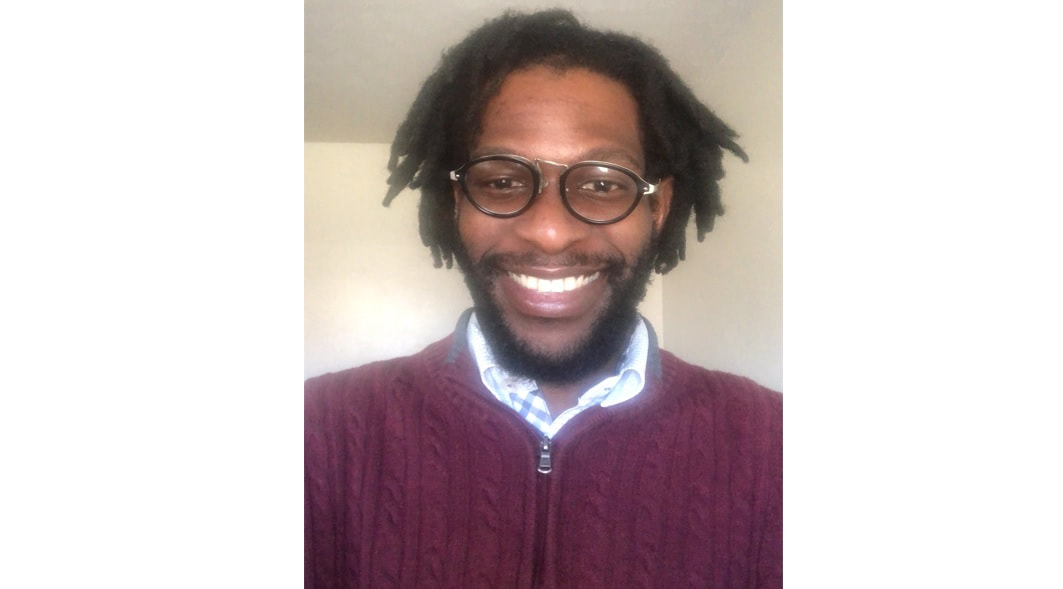

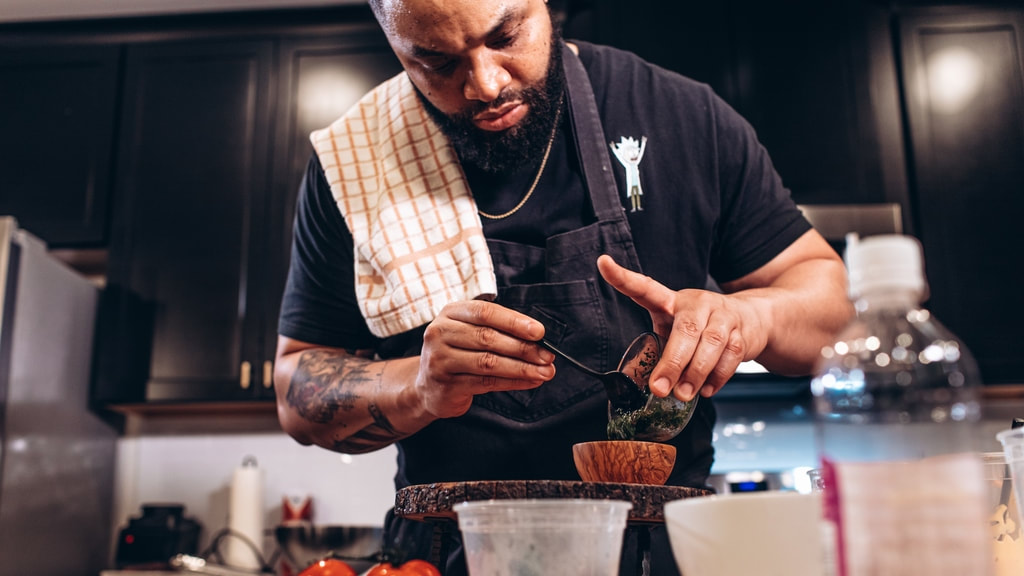

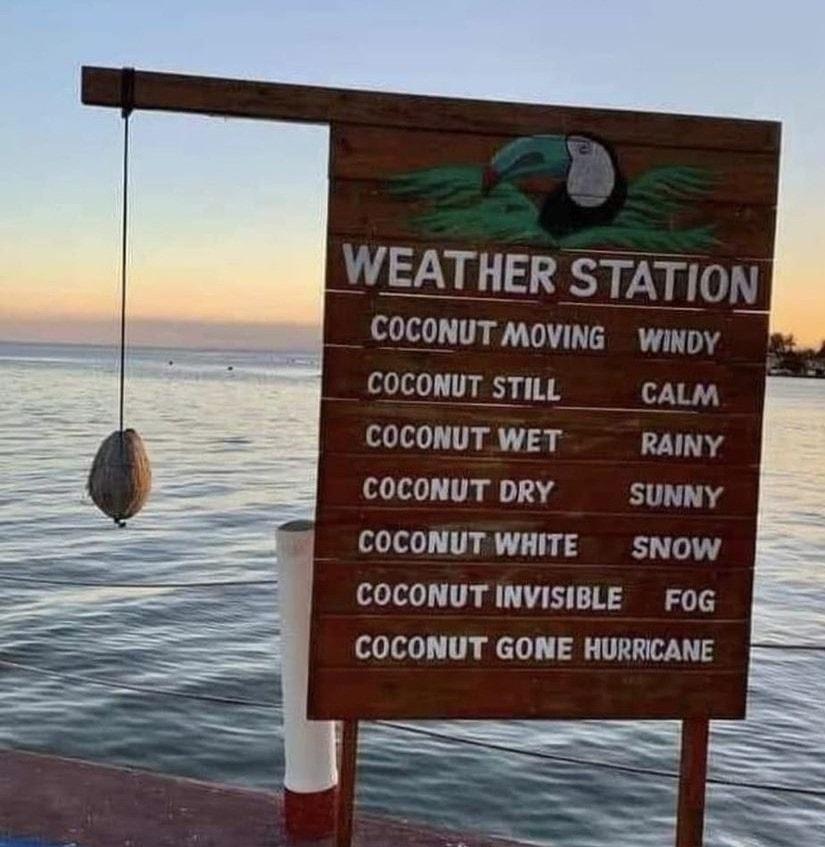

 RSS Feed
RSS Feed